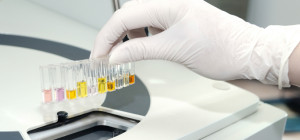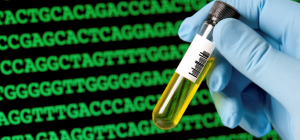 Advancements in biotechnology, particularly the development of CRISPR-Cas9, have revolutionized the world of genetic engineering. This powerful tool allows scientists to make precise changes to the DNA of various organisms, opening up countless possibilities for scientific discovery and practical applications. However, as with any groundbreaking technology, the ethical implications of CRISPR and genetic engineering have been a topic of substantial debate.
Advancements in biotechnology, particularly the development of CRISPR-Cas9, have revolutionized the world of genetic engineering. This powerful tool allows scientists to make precise changes to the DNA of various organisms, opening up countless possibilities for scientific discovery and practical applications. However, as with any groundbreaking technology, the ethical implications of CRISPR and genetic engineering have been a topic of substantial debate.
The CRISPR-Cas9 System: A Game Changer in Genetic Engineering
The CRISPR-Cas9 system is a revolutionary genetic engineering technology that allows scientists to make precise edits to the DNA of living organisms. The tool comprises two components: the CRISPR RNA (crRNA) and the Cas9 protein. The crRNA guides the Cas9 protein to sections of the DNA that need to be modified, where it cuts the DNA molecule like molecular scissors.
The CRISPR-Cas9 system is versatile in the organisms it can be used. It can genetically modify a wide variety of plants, animals, and microbes, including humans. However, the technology is comparatively new and continues to undergo improvements. The CRISPR process is precise but not always perfect, and it could still potentially interfere with unrelated genes that the scientist did not intend to modify. The CRISPR technique will require much more research and refinement to ensure it can be used safely and accurately.
Clustered regularly interspaced short palindromic repeats (CRISPR) and CRISPR-associated protein 9 (Cas9) is a gene-editing technology that delete or sections of DNA, allowing scientists to edit genes more accurately and efficiently than ever before (1) CR has the potential to cure genetic diseases, improve agricultural sustainability, and even eliminate the transmission of diseases such as malaria by genetically editing disease-carrier mosquitoes (2). However, the unprecedented power of this technology has raised various ethical issues related to human dignity, animal welfare, and socio-economic implications.
CRISPR-Cas9 system presents enormous opportunities for scientific discovery, and it is already being used in research across a range of disciplines. The technology is already being utilized in the fight against genetic diseases and to create genetically modified crops to help solve the world’s food security problem. As it continues to develop, it has the potential to transform the way we approach genetic engineering research.
Human Dignity and Genetically Modified Babies
One of the most contentious ethical debates surrounding CRISPR revolves around “designer babies” and germline editing. Germline editing involves altering the DNA of embryos, sperm, or eggs, leading to permanent genetic changes that can be passed down through generations that the manipulation of genetics for non-therapeutic purposes, such as enhancing intelligence or physical appearance, crosses a line by commodifying human life and jeopardizing human dignity (4).
One famous case that sparked worldwide controversy was the announcement in 2018 by Chinese scientist He Jiankui, who used CRISPR to edit the genes of embryos to make them HIV-resistant (5). His work was widely condemned as unethical, and it ignited calls for global consensus on the limits and acceptable uses of CRISPR for human genetic engineering.
Animal Welfare and CRISPR
Animal welfare is another significant ethical concern in the world of CRISPR and genetic engineering. Using CRISPR to modify animals not only has potential benefits, such as eliminating suffering caused by genetic diseases, but also raises concerns about the potential mistreatment of animals created through genetic engineering (6). Superficially modifying animals for aesthetic reasons or creating genetically modified organisms (GMOs) that suffer as a result of their altered genetics poses an ethical dilemma. Balancing the benefits of potential breakthroughs in research and agriculture with the welfare of animals is a complex issue that requires thoughtful consideration and regulation.
Socio-economic Implications and Genetic Inequity
Genetic equity is a significant concern regarding genetic engineering, particularly CRISPR. It involves the idea that the benefits and risks of genetic engineering may be distributed unequally among different populations, which could further exacerbate social inequality.
Genetic engineering also presents ethical questions regarding social equity and justice. Some critics argue that the benefits of CRISPR may only be accessible to the wealthy, further widening the gap between rich and poor (7). Genetic enhancements, particularly in humans, could lead to a future where one’s socio-economic status determines their genetic “quality,” exacerbating inequality and discrimination. Experts argue that regulations and public policy must address these potential issues to ensure equitable access to CRISPR technology’s benefits for all.
One of the main concerns raised regarding genetic equity is the potential for genetic modification to create genetic “classes” where individuals who are genetically modified are deemed superior to those who are not. This could lead to discrimination, where individuals who are not genetically modified face exclusions from certain opportunities, including education employment.
Another concern about genetic equity is access to the technology and its benefits. At the current stage, CRISPR technology is much more expensive and resource-intensive than traditional medicine, making it less accessible to individuals living in poverty or low-income countries. This could mean that the benefits of genetic medicine go primarily to those who can afford it.
Additionally, there may also be ethical and legal issues surrounding the patenting of genes and genetic modifications, preventing some individuals or groups from having access to them.
To address the issue of genetic equity, scientists and policymakers need to develop strategies to ensure that CRISPR research is conducted in a manner that is inclusive, respectful, and equitable. These strategies could include greater transparency, more significant public dialogue around the ethical implications of CRISPR research, and the establishment of regulatory processes that ensure the technology’s benefits are distributed equitably. Ultimately, ensuring genetic equity is an essential aspect of promoting social justice, scientific integrity, and human dignity in the context of genetic engineering.
Conclusion
CRISPR and genetic engineering hold immense potential for advancing science, medicine, and agriculture. Nevertheless, it is crucial to carefully consider and address the ethical implications and challenges that arise from these advancements. The complex issues surrounding human, animal welfare, and social equity require a global consensus, thoughtful consideration, and a robust regulatory framework. As society grapples with these ethical questions, the benefits and drawbacks of CRISPR and genetic engineering must be measured against our collective values and the potential impact on future generations.
References
1. Doudna, J. A., & Charpentier, E. (2014). The new frontier of genome engineering with CRISPR-Cas9. Science, 346(6213), 1258096.
2. Harris, R. S., & Church, G. M. (2021). Introduction to the principles and practice of CRISPR-Cas9. Journal of Chemical Education, 98(9), 2836-2845.
3. National Academy of Sciences. (2017). Human Genome Editing: Science, Ethics, and Governance. National Academies Press.
4. Savulescu, J., Pugh, J., Douglas, T., & Gyngell, C. (2015). The moral imperative to continue gene editing research on human embryos. Protein & Cell, 6(7), 476-479.
5. Cyranoski, D., & Ledford, H. (2018, November 28). Genome-edited baby claim provokes international outcry. Nature News. Retrieved from https://www.nature.com/articles/d41586-018-07559-8
6. Rollin, B. E. (2015). Ethics and genome editing in animals. Journal of Applied Animal Welfare Science: JAAWS, 18 Suppl 1, S1-6.
7. Gyngell, C., & Selgelid, M. (2016). Genetic equity. Health Care Analysis, 24(4), 323-337.









